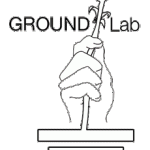GROUND LAB is a research and development company focused on designing and fabricating prototypes and solutions for a wide range of clients, ranging from large organizations like UNICEF to smaller NGOs, conservationists and artists. We use the open source approach in our development not only for the benefits and context described previously, but also for the advantages it provides for our clients.
Read part 1 of this series, Practical prototyping and the history of technological development and part 2, Open source and the manufacturing shift
When designing an open source product, you automatically build in aspects of tech support for the client through community-based information and developments. The important task then is choosing what open platforms to use in regards to the staying power and cohesive nature of that community.
This has been applicable to the organizations and individuals who want a product that they can modify and make small adjustments on themselves in order to save time and money. This is very apparent with the conservationists and researchers we have worked with. Given the close ties conservationists have between their research tools and their work, the ability to customize their technology without a lot of overhead and resources is crucial to the tech they implement and ultimately to the quality of research.
A possible future of open source social patterns for our business
Our business functions within the current economic system led by the United States, which has its theoretical basis in the organization of a society’s capital, based on the needs of production and the demand for that production. The current actual management of capital is secluded into non-production or demand-related structures of finance, but with open source information practices and new data management systems, a more informed, faster-responding network of capital procurement and structuring is possible.
Using the tools mentioned above, we are starting to replace current business structures and streamline our business by making direct connections with our users and clients and the sources for the materials necessary for our products. We are replacing middle management with software tools, leaving labor to run a functional capitalistic market. Open source, as we have come to use it, is not against patents of use, but against patents of labor.
To this end, capital is being created and stored in many ways, from the farmland, which symbolically expresses its capital in stonewalls made from clearing stones from the field, to an IOU given to a friend who helped you at work. Finance-based capital has a smaller share of everyday functional resources than is currently acknowledged. A vast deposit of capital is occurring on servers across the world, in the form of information and data, where engineers, entrepreneurs, and creative people can invest in themselves, without the oversight of a direct managerial structure. This pushes the market toward what Abraham Lincoln viewed as the strongest form of a free market model and a chance for small business to function as the fruit of their labor:
“Labor is prior to, and independent of, capital. Capital is only the fruit of labor, and could never have existed if labor had not first existed. Labor is the superior of capital, and deserves much the higher consideration.”
--Abraham Lincoln
Edited by Benedetta Piantella, co-founder of Ground Lab, LLC






Comments are closed.